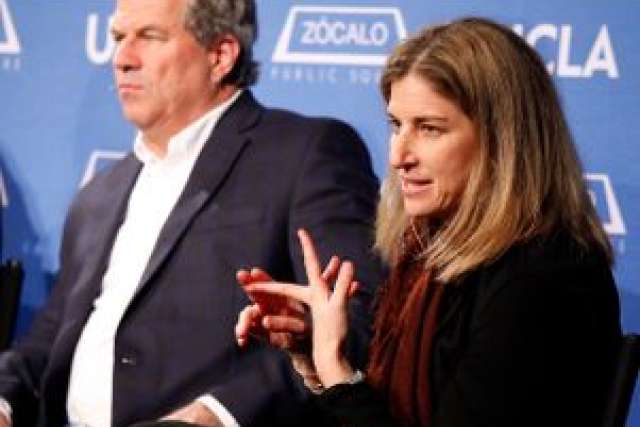The roots of America’s widespread opioid addiction are complex and extend to the economy, bad medicine and corrupt pharmacists, said UCLA legal scholar and health policy expert JillHorwitz, who participated in a Zócalo/UCLA panel Wednesday, Nov. 30, examining the causes and potential solutions to the crisis that has claimed thousands of lives over the last 15 years.
Horwitz told the audience gathered at the Downtown Independent that her research, including a paper she co-authored in the New England Journal of Medicine on opioid use among disabled adults, hasn’t found any evidence that legal interventions make a difference in stopping overuse.
But changes are afoot, including at medical schools, said UCLA Addiction Medicine Clinic Director Larissa Mooney, an associate clinical professor in psychiatry and biobehavioral sciences, who was also on the panel. She recalled seeing a dramatic transformation take place in medical school. “Doctors were told actually that opioids for pain are both effective and had minimal risk of addiction,” she said. “We’re learning that that is not true.”
Aaron Salcido/Zócalo - Larissa Mooney speaks to panel members and an audience gathered at Downtown Independent
Currently, she said, the gold standard for treating opiate addiction is the use of drugs like methadone and naltrexone that “take the place of and break the cycle of intoxication, withdrawal, chasing the high, and trying to recover from the low.”
To read the complete story about Wednesday’s Zócalo/UCLA panel discussion, go here.



